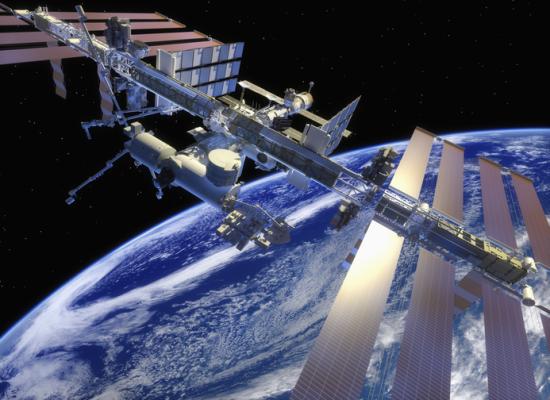
Getty Images
November 16, 2023 — Mount Sinai’s Cardiovascular Research Institute is sending bioengineered human heart muscle cells and micro-tissues into space for the first time on NASA’s 29th SpaceX commercial resupply services mission, which launched Thursday, November 9. The “SpaceX CRS-29” mission is sending scientific research to the International Space Station (ISS), where the samples will stay for approximately 30 days before returning to Earth.
Through this experiment, Icahn School of Medicine at Mount Sinai researchers aim to gain a better understanding of how cardiac muscle cells, or cardiomyocytes, adapt to extreme biological stresses, and how microgravity and other features of space travel impact cardiomyocyte function. The findings will help scientists find better ways to study heart cell biology in future space experiments.
Understanding the capabilities and limitations of such heart cells to survive is not only important for the health of astronauts, but also a first step toward future efforts in space-based tissue engineering, organoid fabrication, and bioprinting, which are all important players in the emerging economy of biomanufacturing in the microgravity environment known as low Earth orbit.
Mount Sinai is partnering with Space Tango to run this experiment. Space Tango provides access to microgravity for research and development purposes on the ISS. Space Tango will manage Mount Sinai’s tissues, which will be sealed in individual small-scale experimental containers called cryovials and placed in a larger containment unit known as a CubeLab. These one-milliliter vials also contain cell culture media and additives to help keep the cardiac muscle cells alive for an extended period, with some beating and some chemically arrested to reduce their metabolism and see if their survival is impacted. Once the cargo capsule carrying the research arrives at the ISS, astronauts will place the CubeLab in a dedicated Space Tango facility. After approximately 30 days, astronauts will return the samples to Earth, and Mount Sinai researchers will begin their analyses.
Astronauts commonly experience signs of heart failure during space missions due to extreme conditions that seem to accelerate the aging process. Their symptoms mimic what happens to people on Earth as they age or are bedridden, but at an accelerated pace and a younger age. Results from this experiment could help researchers identify new ways to protect the heart health of astronauts while in space, and to develop new therapies for cardiovascular disease among aging populations on Earth.
“This project will help us understand the impact of microgravity and space flight on engineered human heart muscle cells and micro-tissues, and will test for the first time how these highly active beating heart muscle cells adapt to a month of exposure to such extreme conditions. One of the exciting aspects of the experiment is that the samples will be shipped to Mount Sinai alive after they return to Earth, so we can test how the tissues perform when they come back,” explains Kevin Costa, PhD, the project leader and an Associate Professor of Medicine (Cardiology) at Icahn Mount Sinai. “As we gain a better understanding of how these engineered cardiac cells and tissues function, we can find new ways to help protect astronauts so they can stay in space longer to complete more in-depth exploratory missions. This will also provide clues about how to better protect the hearts of people on Earth from the detrimental effects of aging and inactivity.”
Mount Sinai generated these human heart muscle cell samples from induced pluripotent stem cells from a healthy adult donor. The cells are cultured in three distinct configurations: 2D monolayers, 3D spheroids, and 3D elongated cardiac tissue formats. This will test whether the 3D culture conditions, which are more physiologic than 2D cultures, offer a biological advantage for the heart cells.
“The goal of the experiment is to assess the ability for our engineered cardiac cells and micro-tissues to survive in a sealed environment in microgravity for 30 days, and to compare the survival characteristics to equivalent samples cultured in our laboratory at Mount Sinai’s Cardiovascular Research Institute. We are testing to see if microgravity will alter the cardiomyocyte ability to adapt to this enclosed environment, and to see if there are differences in the biology of the cells that are returned from the ISS,” adds Dr. Costa. “We hope to learn more about the effects of microgravity on human heart cell and tissue biology, and to explore the possibility of performing such studies in a sealed environment that does not require the usual fluidic exchange systems that significantly add to the complexity of doing cell biology in space.”
“As the cost of space flight continues to drop, and more and more people begin to live and work in space, it will be important to understand how that environment impacts their bodies. Miniaturized bioengineered tissues are great tools for learning about this while minimizing launch costs. We're excited to be able to apply our tools towards the new field of space medicine, and to use microgravity as a model of human aging,” says researcher David Sachs, PhD, Assistant Professor of Genetics and Genomic Sciences at Icahn Mount Sinai.
For more information: www.mountsinai.org


 January 05, 2026
January 05, 2026 









